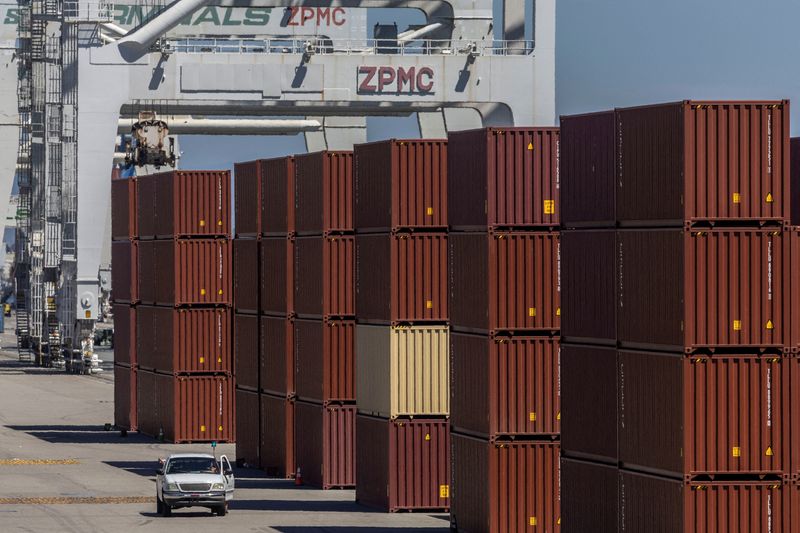(Reuters) - Stress on global supply chains improved in July to their lowest level since January 2021 as port congestion and other snags eased, the New York Federal Reserve reported on Thursday, in its latest update to a worldwide index of supply problems.
It was the third straight month of declines in an encouraging sign for U.S. Federal Reserve policymakers who are keen for supply chain issues to ease in order to help tame inflation running at a four-decade high in the world's largest economy.
The regional bank's Global Supply Chain Pressure Index incorporates data on shipping costs, delivery times, backlogs and other statistics into a single measure compared to historical norms.
The index is now down more than 50% from last December's record high but still remains well above levels seen just before the start of the COVID-19 pandemic.
Thursday's data tallies with a survey published earlier this week by the Institute for Supply Management, which showed a measure of the speed of supplier deliveries also improving.

Supply chain issues have become a key issue in the global recovery from the pandemic, and in the efforts of the Fed and other major central banks to quash inflation. They intensified earlier in the year as coronavirus lockdown measures in China and the war in Ukraine lengthened delivery times.
The U.S. central bank and some other institutions have already begun to more swiftly raise interest rates in an effort to dampen demand for goods and services while hoping supply chains untangle in order to bring economies into better balance.